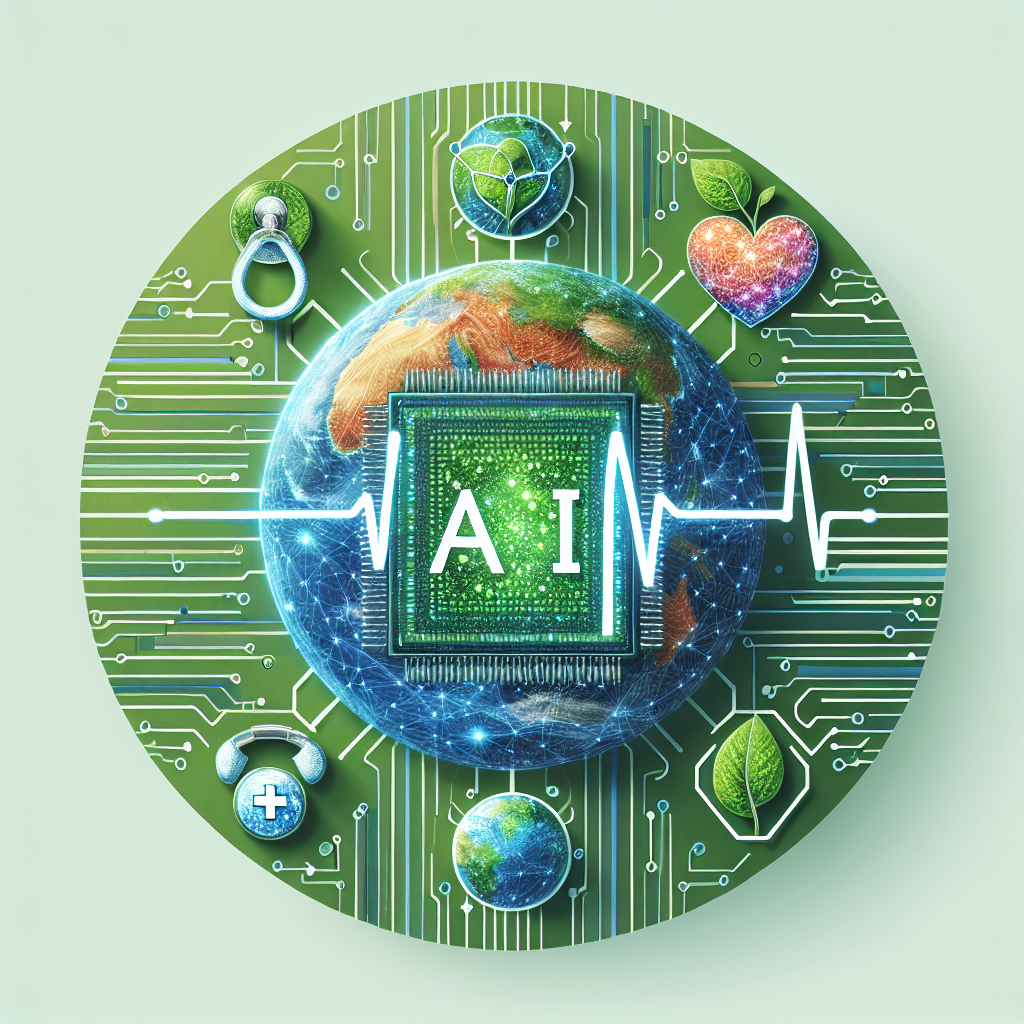The Impact of AI on Sustainable Healthcare Services
Artificial Intelligence (AI) has made significant strides in recent years, impacting various industries and transforming the way businesses operate. In the healthcare sector, AI is revolutionizing the delivery of services, improving patient outcomes, and making healthcare more sustainable. From predictive analytics to personalized medicine, AI is playing a crucial role in shaping the future of healthcare.
One of the key benefits of AI in healthcare is its ability to analyze large amounts of data quickly and accurately. This enables healthcare providers to make more informed decisions, leading to better patient outcomes. For example, AI can analyze medical images to detect diseases such as cancer at an early stage, improving the chances of successful treatment. AI-powered algorithms can also predict patient outcomes and identify high-risk patients, allowing healthcare providers to intervene early and prevent adverse events.
AI is also transforming the way healthcare services are delivered. Virtual health assistants powered by AI can provide patients with personalized health advice and support, reducing the burden on healthcare providers and improving access to care. AI-powered chatbots can help patients schedule appointments, refill prescriptions, and access medical information, making it easier for patients to manage their health.
Another area where AI is making a significant impact is in drug discovery and development. AI algorithms can analyze vast amounts of data to identify potential drug candidates, predict their efficacy, and optimize their dosages. This accelerates the drug development process, reducing costs and increasing the chances of success. AI can also help healthcare providers personalize treatment plans based on a patient’s unique genetic makeup, improving the effectiveness of treatments and reducing the risk of adverse reactions.
AI is also improving the efficiency of healthcare operations, making healthcare services more sustainable. AI-powered algorithms can optimize hospital workflows, improve resource allocation, and reduce administrative costs. For example, AI can help hospitals schedule surgeries more efficiently, allocate hospital beds based on patient needs, and streamline the billing process. This not only improves the quality of care but also reduces healthcare costs and makes healthcare services more sustainable in the long run.
In addition to improving patient care and operational efficiency, AI is also helping healthcare providers comply with regulatory requirements and ensure patient privacy and security. AI algorithms can analyze healthcare data to identify potential security threats, detect anomalies, and protect patient information from unauthorized access. This helps healthcare providers comply with regulations such as the Health Insurance Portability and Accountability Act (HIPAA) and the General Data Protection Regulation (GDPR), ensuring that patient data is kept safe and secure.
Overall, AI is revolutionizing the healthcare industry, making healthcare services more sustainable and improving patient outcomes. By leveraging the power of AI, healthcare providers can deliver more personalized care, make more informed decisions, and optimize their operations. As AI continues to advance, its impact on healthcare is only expected to grow, leading to a more efficient, effective, and sustainable healthcare system.
FAQs:
Q: How is AI being used in healthcare?
A: AI is being used in healthcare in various ways, such as analyzing medical images to detect diseases, predicting patient outcomes, personalizing treatment plans, and optimizing hospital operations.
Q: What are the benefits of using AI in healthcare?
A: The benefits of using AI in healthcare include improved patient outcomes, personalized care, operational efficiency, cost savings, and enhanced compliance with regulatory requirements.
Q: How can AI improve patient outcomes?
A: AI can improve patient outcomes by analyzing large amounts of data to predict patient outcomes, identify high-risk patients, personalize treatment plans, and detect diseases at an early stage.
Q: How can AI make healthcare services more sustainable?
A: AI can make healthcare services more sustainable by improving operational efficiency, reducing costs, optimizing resource allocation, and ensuring compliance with regulatory requirements.
Q: What are the challenges of implementing AI in healthcare?
A: Some of the challenges of implementing AI in healthcare include data privacy and security concerns, regulatory compliance issues, ethical considerations, and the need for healthcare providers to adapt to new technologies.
Q: What is the future of AI in healthcare?
A: The future of AI in healthcare is bright, with continued advancements in AI technology expected to further revolutionize the healthcare industry, leading to more personalized care, improved patient outcomes, and a more sustainable healthcare system.

